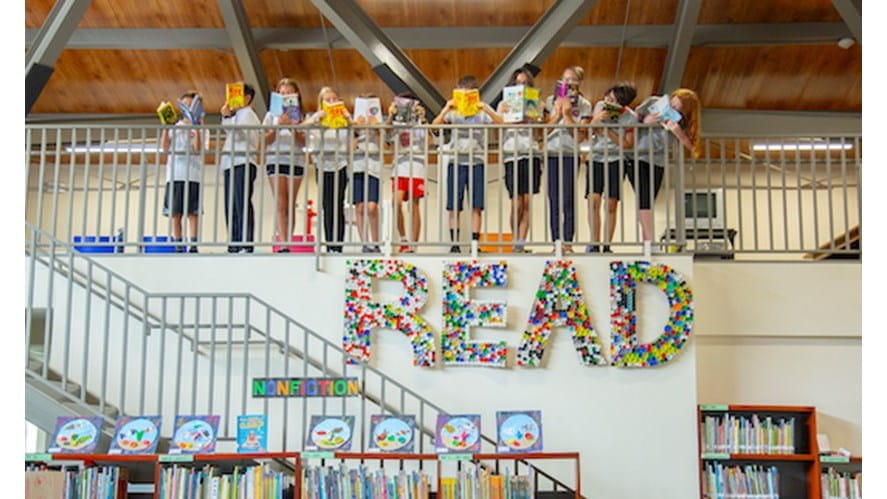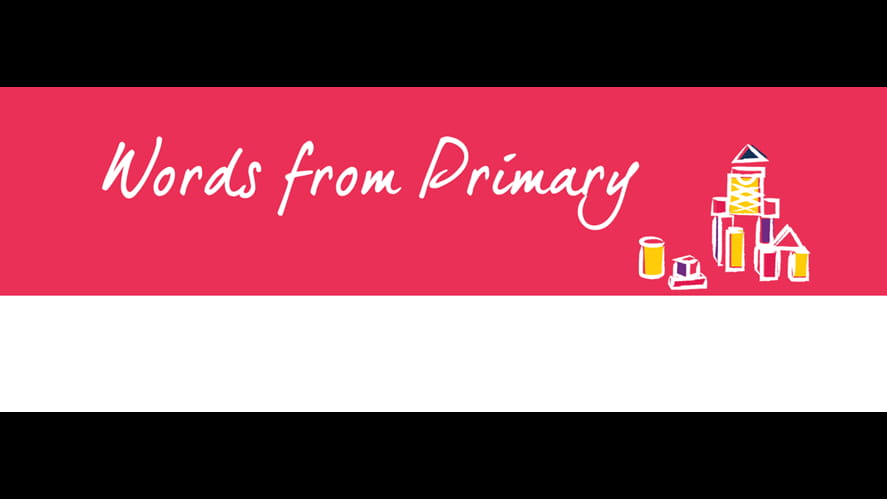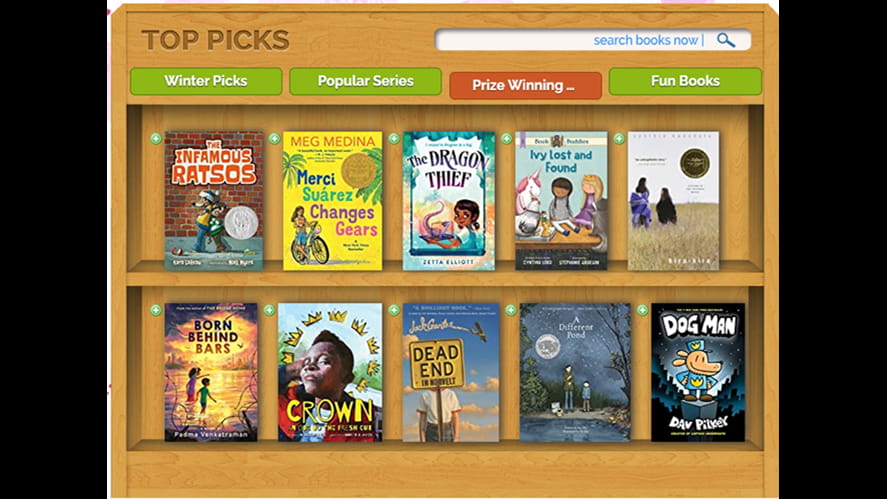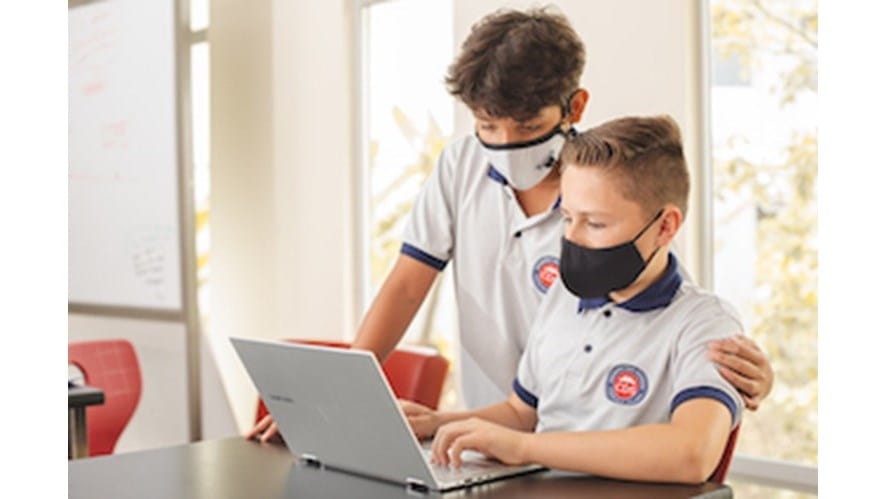We use cookies to improve your online experiences. To learn more and choose your cookies options, please refer to our cookie policy.


Mrs. Ariel Weissburg
Primary Principal
Dear Families,
I hope you’ve had a wonderful week. In our last newsletter, information was shared about our cursive curriculum and the continuum of writing development across grade levels. Another aspect of balanced literacy is reading, which includes fluency, comprehension, and building an interest in reading. Since reading is an integral part of every child’s academic success, I’m sharing information in this newsletter about how we’re supporting your child’s development at school and how you can support it at home.
Please reach out to your child’s teacher or me to talk more about your child’s reading development.
Wishing you a great weekend!
Ariel
Reading aloud from a high-quality picture book is a practice that begins with the youngest learner and follows children throughout the elementary grades. Teachers model fluent and expressive reading and often think aloud, ask carefully crafted questions, and spark book conversations. Read-alouds may be used to support learning in any content area. Most importantly, gathering with classmates to enjoy a lively story instills a love for reading throughout the ages.
Reader’s Workshop begins with the teacher modeling a strategy, followed by children curling up with a book of their choice to practice that strategy as teachers meet with students to work on their individual goals. In upper elementary, children join Book Clubs to read and discuss chapter books and novels together. Reading to find information is embedded into Writer’s Workshop, as children research topics of interest to write non-fiction or opinion pieces.
In these small group mini-lessons, children join others of similar reading levels, take turns reading from a common text aloud, and practice specific strategies to meet the individual needs of readers.
Whether through Library check-out time, Book Clubs, or selecting books from their classroom libraries, children are provided with both choice and guidance in choosing books to match their reading level and their interests.
Reading aloud to your child is one of the best things you can do to support their overall learning. Research shows that children need to have 1,000 books read aloud to them before they are ready to learn to read. Ideally, reading aloud is a daily ritual between a fluent reader and a child. As children grow, parent and child can even take turns reading to each other. Read alouds can include chapter books and novels, but picture books are always appropriate as well.
Whatever your child likes! From classics like Eric Carle picture books or The Hardy Boys mystery series to modern favorites like the Elephant and Piggy or Percy Jackson series to silly or trendy books like Fly Guy, Captain Underpants, or the Babysitters Club graphic novels. Note: All of these authors and series can be found at the CDS Library!
No, you can read aloud in whatever language you and your child feel comfortable with! Reading allowed in your native language can be an opportunity to share your favorite books from your own childhood. Research shows that children who are strong readers in their native language are better able to transfer those skills to their second language.
It’s important that children are reading independently as well. At school, teachers work to select books in your child’s ideal reading level. At home, children should read for pure enjoyment. That may include books below their reading level, picture books, graphic novels, or even magazines. If a child wants to read a book that is beyond their reading level, this is a great opportunity for adult support.
Reading from a physical book provides benefits that can’t be gained from e-books, especially for younger learners. Nothing can quite replace an in-person reading experience with a fluent reading model. Still, there is value in e-books read by your child or by the computer to your child with programs like Epic, and in video read-alouds in programs like Storyline Online or Vooks.
Conferences will be held on March 30th via Zoom. Zoom links will be shared with families before conferences.
When multiple staff members are attending a conference, families will receive an email from teachers with requests to meet at a specific time.
On March 21st families with multiple children will receive the online sign-up link.
On March 23rd other families will receive the online sign-up link.
Sign-ups will close on Sunday, March 28 at noon.
Families should remember to sign up for meetings with special area and Spanish teachers separately from homeroom teachers.
FARO is an exam given to 5th-grade students in the area of Spanish, mathematics, and science. All fifth-grade students in Costa Rica take this exam.
We received an update from the Ministry of Public Education (MEP) that our current 5th-grade students will take FARO in November when they are in 6th grade.
Our Spanish teachers integrate the skills that will be assessed on the FARO exam throughout their daily instruction.
On Friday, March 4th fifth-grade students were given a practice test to take home to share with their family.
Our current 4th graders will take FARO in fifth grade. We anticipate this will be in May of next year.
The Prep Moving Up Ceremony will take place on June 7th.
The 5th Grade Moving Up Ceremony will take place on June 8th.
Ceremonies will occur in person unless the country’s health guidelines don’t allow for this in June.
At this time, immediate family members will be invited to attend ceremonies. If this changes, we will notify families.
Students should bring reusable water bottles to school each day.
Swimming will end for 2nd - 5th-grade students at the end of the quarter. PreK - Grade 1 students will start swimming the week of April 18th.
The easiest way to share ideas and concerns related to your child’s experience at CDS is by emailing or calling Ariel Weissburg.
WhatsApp is not a formal school communication channel. Topics can not be addressed in a comprehensive and direct way through class chats.
Our elementary teachers use the Developmental Reading Assessment (DRA) to assess students reading levels at least twice a year. This assessment helps teachers get a full understanding of students’ reading fluency, comprehension, vocabulary, and reading engagement so that we can individualize reading support for each student.
Students are assigned a numeric (or alphanumeric for very early readers) DRA level A1 through 80. At home or during independent reading time at school, we can use students’ DRA levels to provide students with “just right” book options to read independently. At home, I highly recommend using Scholastic’s Book Wizard to help find books at the appropriate level for your child. When a book is at a child’s level it often helps children stay engaged and excited about reading!
Reading at home is so important! I encourage families to read together and make this a daily routine. Here’s a list of questions families can use to guide conversations with their children before, during, and after reading. Teachers will be sharing DRA levels by email with families as they become available.
Review the books we have available: cdslib.follettdestiny.com

CDS is no longer offering virtual school to any student as a precaution against infection. Virtual School is an option for students who test positive for Covid or are under an orden sanitaria due to a positive family member. If VS becomes necessary then the classroom teacher will share a spreadsheet with the virtual learning plan. This plan will include the daily schedule with specific zoom links and assignments for asynchronous assignments.

If parents of bus riders wish to change their child's usual method of transportation home, they must fill in the Primary School Student Transportation Change (JUST FOR BUS USERS) before 11:00 a.m. If the child is not a bus user, the family needs to send an email directly to the teacher and secretary indicating the corresponding change before 11:00 am. For the safety of all children, transportation changes may not be made through a phone call.
If a student must be picked up early from school, the family should email the classroom teacher and secretary with the name of the student(s), time, and name of the person picking up the child. The Prek-3rd grade will use the East Gate, 4th and fifth grade will use the North Gate. The person picking up must show their ID.
Please fill out the Primary Permanent Permission to Leave School form in order to authorize who has your permission to pick up your child from the school. This must be updated at the beginning of every school year by every family. If the information is not updated, only the mother or father of the child are allowed to pick up the student.